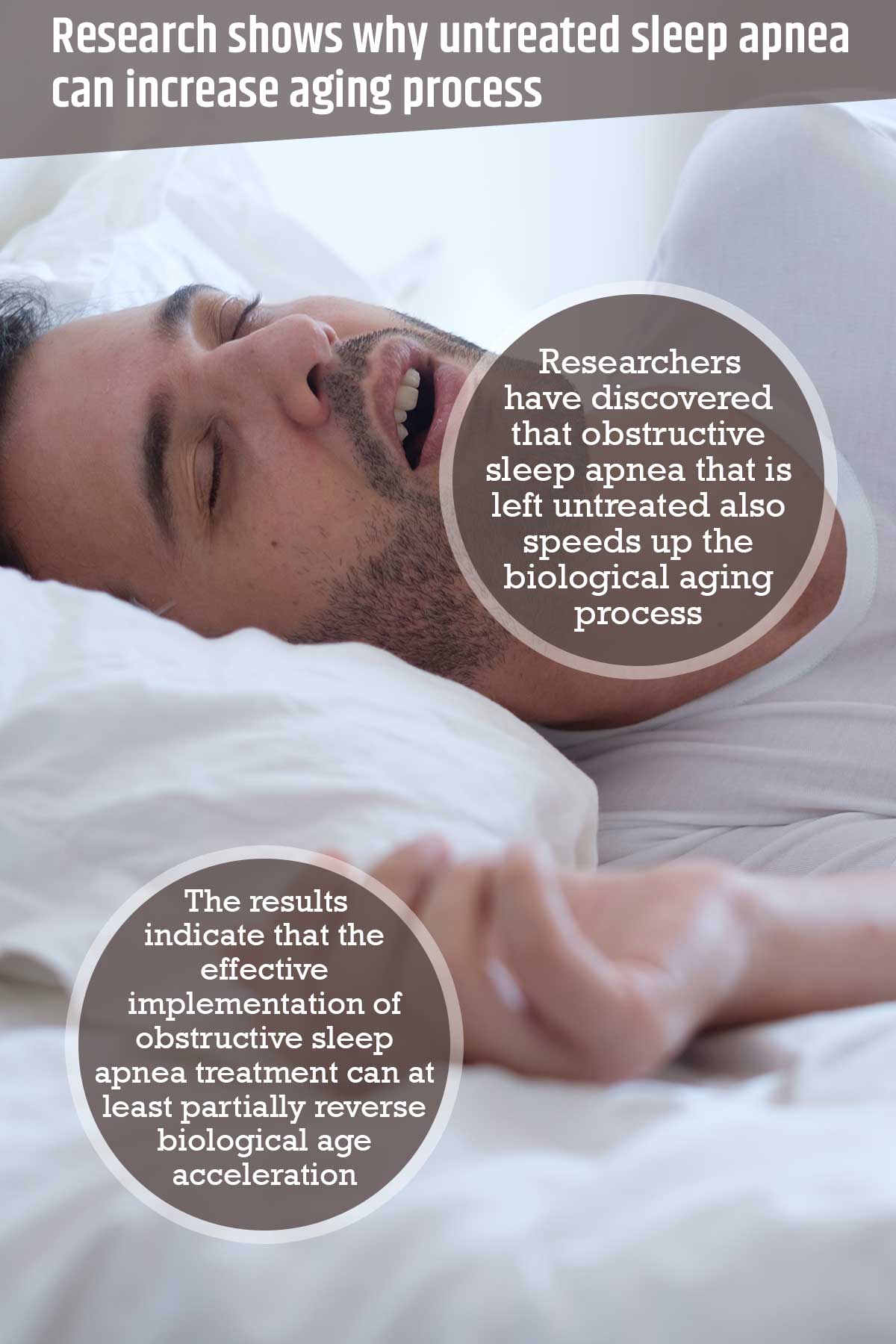Obstructive sleep apnea impacts 22 million individuals in the United States and is associated with a greater risk of high blood pressure, diabetes, heart attacks, stroke, and a number of other chronic conditions.
Researchers have also discovered that obstructive sleep apnea that is left untreated also speeds up the biological aging process which can be slowed or potentially reversed with appropriate treatment.1✅ JOURNAL REFERENCE
DOI: 10.1183/13993003.03042-2021
Testing age acceleration involves a DNA analyzing blood test that makes use of an algorithm for measuring the biological age of an individual.
The phenomenon of the biological age of an individual exceeding their chronological age is referred to as “epigenetic age acceleration,” which is associated with chronic disease and overall mortality.
Age acceleration is not unique to obstructive sleep apnea; it can be a result of various environmental factors such as pollution, poor diet, or smoking.
Although it’s quite common for individuals In Western culture to suffer from epigenetic age acceleration, the researchers investigated how obstructive sleep apnea impacts systemic age acceleration in comparison to individuals not suffering from it.
The researchers examined 16 non-smokers who had been diagnosed with obstructive sleep apnea and they were compared to 8 control individuals without it to evaluate the impact of obstructive sleep apnea on epigenetic age acceleration for a year.
Following a blood test at baseline, the obstructive sleep apnea group was given continuous positive airway pressure treatment for 1 year before they were tested again.
The study results revealed that lower oxygen levels and sleep disruptions induced by obstructive sleep apnea while sleeping increased biological age acceleration in comparison to the control group.
The obstructive sleep apnea individuals adhering to continuous positive airway pressure did however show an epigenetic age deceleration, while there was no change in age acceleration trends for the control group.
The results indicate that the effective implementation of obstructive sleep apnea treatment can at least partially reverse biological age acceleration.
According to the researchers, the key to the success that continuous positive airway pressure has in slowing age acceleration is strict device use adherence for a minimum of 4 hours a night.



